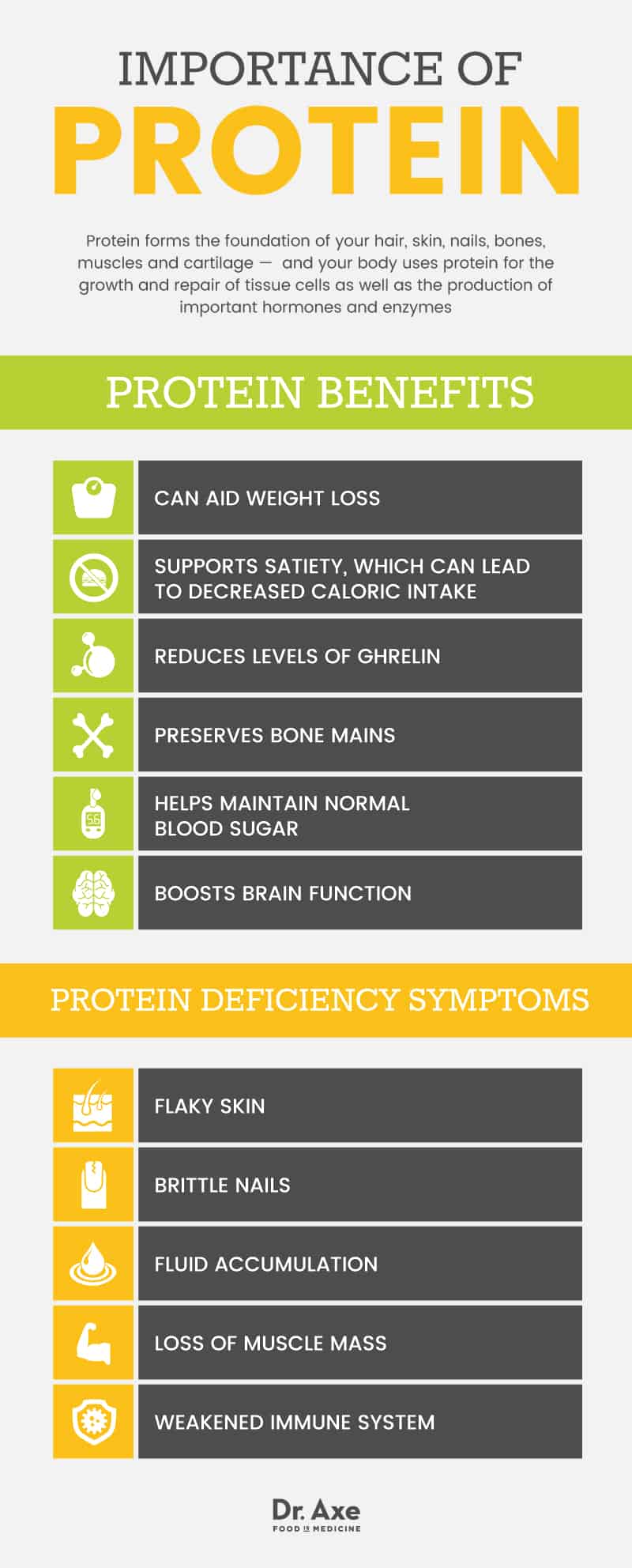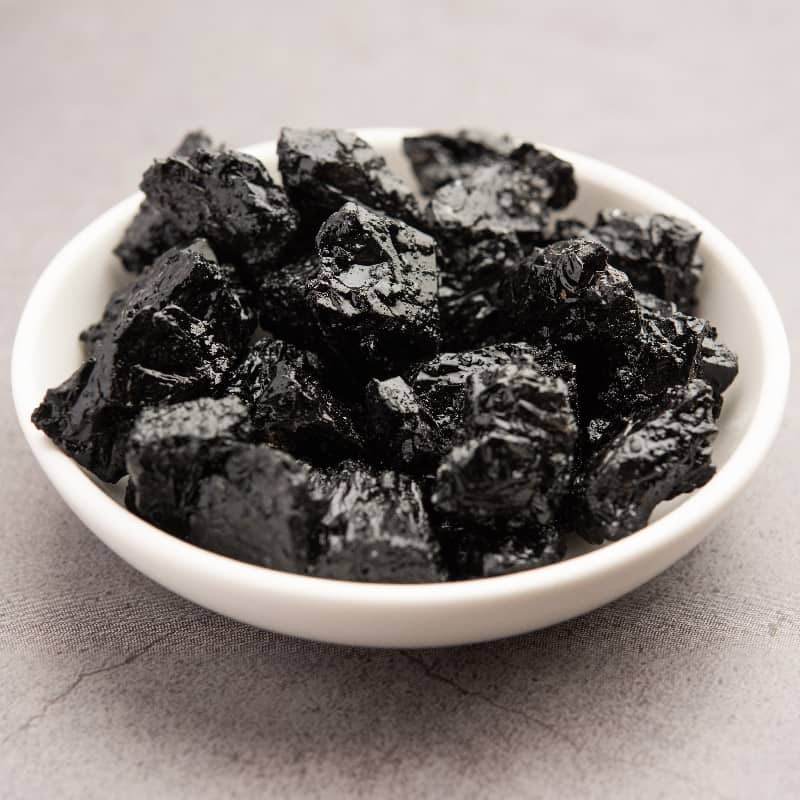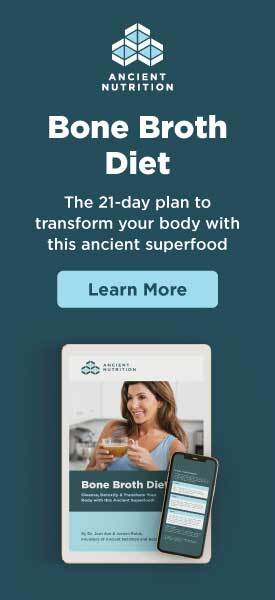This Dr. Axe content is medically reviewed or fact checked to ensure factually accurate information.
With strict editorial sourcing guidelines, we only link to academic research institutions, reputable media sites and, when research is available, medically peer-reviewed studies. Note that the numbers in parentheses (1, 2, etc.) are clickable links to these studies.
The information in our articles is NOT intended to replace a one-on-one relationship with a qualified health care professional and is not intended as medical advice.
This article is based on scientific evidence, written by experts and fact checked by our trained editorial staff. Note that the numbers in parentheses (1, 2, etc.) are clickable links to medically peer-reviewed studies.
Our team includes licensed nutritionists and dietitians, certified health education specialists, as well as certified strength and conditioning specialists, personal trainers and corrective exercise specialists. Our team aims to be not only thorough with its research, but also objective and unbiased.
The information in our articles is NOT intended to replace a one-on-one relationship with a qualified health care professional and is not intended as medical advice.
The Best & Worst Meat Substitutes for Your Health
March 20, 2018

If you’ve ever transitioned to a plant-based diet, you’re probably all too familiar with the first question that everyone asks: “Where are you getting your protein from?” While meat supplies a good amount of protein (as well as other important vitamins and minerals), there are many meat substitutes available that can easily provide a similar set of nutrients.
In fact, several of these foods are also high in other health-promoting properties that may not be found in meats, such as probiotics and fiber. By incorporating a few servings of plant-based protein foods in your diet, you can meet your nutritional needs and even enhance the health of your diet, vegetarian or not.
Importance of Protein
There’s no doubt that protein is absolutely vital to overall health. Protein forms the foundation of your hair, skin, nails, bones, muscles and cartilage. Not only that, but your body uses protein for the growth and repair of tissue cells as well as the production of important hormones and enzymes.
Getting enough protein in your diet has also been associated with a number of potential health benefits. It can aid in weight loss by supporting satiety, decreasing caloric intake and reducing levels of ghrelin, the hormone that stimulates hunger. (1, 2) It’s also been shown to preserve bone mass, help maintain normal blood sugar levels and boost brain function. (3, 4, 5)
A protein deficiency can cause symptoms like flaky skin, brittle nails, fluid accumulation, loss of muscle mass and even a weakened immune system.
It’s generally recommended to get in at least 0.8 grams of protein per kilogram of body weight, which translates to roughly 0.36 grams of protein for every pound of body weight. Someone who weighs 150 pounds (68 kilograms), for example, might require approximately 54 grams of protein per day. However, this amount can increase based on many factors, including age, activity level and certain conditions, such as cancer.
Related: The Pros & Cons of Textured Vegetable Protein

Healthiest Meat Substitutes
- Tempeh
- Jackfruit
- Natto
- Lentils
- Mushrooms
- Nuts and Seeds
- Beans and Legumes
1. Tempeh
Tempeh is a food made from fermented soybeans that have been pressed into a compact cake. Like other fermented foods, tempeh is rich in probiotics, which are a type of beneficial bacteria found in your digestive tract. In addition to being one of the best meat substitutes for protein, tempeh is also high in calcium, antioxidants and soy isoflavones that may be able to help lower cholesterol levels. (6, 7)
This meat substitute is delicious and easy to work with. It can be marinated or seasoned, then easily crumbled, sliced, sautéed or baked and added to your favorite vegan dishes. It has a slightly nutty taste but easily takes on the flavor of the other ingredients that you’re working with.
2. Jackfruit
Not only is it the largest tree fruit in the world, weighing in at up to 100 pounds, but jackfruit is also jam-packed with powerful health benefits. It’s especially high in antioxidant-rich vitamin C and regularity-promoting fiber. The nutrients found in jackfruit may help enhance immunity, support digestion and improve heart health as well.
Best of all, jackfruit is easily one of the most versatile and best tasting meat substitutes available. It can be found fresh or canned with a texture that’s similar to chicken or pork, making it an excellent addition to many vegetarian or vegan dishes.
3. Natto
Much like tempeh, natto is another nutritious meat substitute made from soy that has been fermented, amping up its probiotic content and nutritional benefits. It’s an excellent source of protein, cramming an impressive 31 grams into just one cup. It’s also high in manganese, iron, copper and magnesium, managing to knock out over half of your daily needs in just one serving.
It’s made by soaking whole soybeans, steaming or boiling them, and then adding a strain of beneficial bacteria and allowing it to ferment. Natto has a strong smell and distinct texture and is definitely an acquired taste. In Japan, natto is a dietary staple for many and is typically seasoned and served alongside cooked rice as a traditional breakfast dish.
4. Lentils
Lentils are a type of edible pulse that are loaded with fiber and an assortment of important micronutrients, such as folate, manganese and iron. A serving or two of lentils per day can help manage blood sugar levels, prevent constipation and keep your weight under control.
Lentils are easy to prepare and can be incorporated into a variety of dishes. They’re often paired with rice or added to soups, stews, salads or dips. They’re also available in many different forms and can be found dried, canned or even frozen.
5. Mushrooms
Revered for their medicinal properties for thousands of years, mushrooms make a super nutritious addition to any diet, vegetarian or not. They’re low in calories but contain a good chunk of several important nutrients. Even more impressive is that mushrooms have been shown to have both antioxidant and antimicrobial properties in some test-tube studies. (8)
Mushrooms are one of the best meat substitutes for vegetarians because they tend to have a rich and meaty flavor that works well in veggie-based dishes. Try adding mushrooms to burgers, stews, casseroles and pasta dishes to bump up the nutritional value of your meal and provide a concentrated dose of flavor to every bite.
6. Nuts and Seeds
Nuts and seeds are high in healthy fats, fiber, vitamins and minerals, so it should come as no surprise that upping your intake can help ward off chronic disease. A recent 2017 study published in the Journal of the American College of Cardiology even found that a higher intake of nuts was associated with a lower risk of coronary heart disease. (9)
Walnuts, almonds, Brazil nuts, cashews, flaxseeds, chia seeds and hemp seeds are a few of the healthiest nuts and seeds that you can add to your diet — just be sure to opt for an unsalted nuts with minimal extra ingredients. Flax and chia seeds also make a great vegan egg substitute to act as a binding agent in recipes. Simply combine one tablespoon of seeds with three tablespoons of water and stir to incorporate.
7. Beans and Legumes
Legumes are officially defined as the fruit or seed of any plant from the legume family, which encompasses a wide range of vegetables like beans and peas. These nutrient-packed veggies are some of the best vegan meat substitutes available; not only do they supply a good amount of protein, but they are also rich in micronutrients that may be lacking in a vegan diet, such as iron and folate.
To take full advantage of the health benefits of legumes, it’s best to sprout them prior to consumption. Sprouting is a process that involves soaking legumes anywhere from eight to 24 hours, then straining them, and allowing them to sit and sprout. Sprouting helps boost the nutrient profile of the legumes while also cutting the content of antinutrients that can impair absorption of certain minerals.
Benefits of the Top Meat Substitutes
Meat is rich in many essential nutrients that your body needs, such as protein, iron, zinc and B vitamins, which is why proper planning is critical on a vegan or vegetarian diet. Fortunately, many of these meat substitutes can help fill in any nutritional gaps that may occur when you take meat out of your diet.
By incorporating a few high-protein substitutes for meat into your diet, you can easily ensure that you’re still able to meet your nutritional needs on a vegan or vegetarian diet. Not only that, but these meat substitutes can also supply additional nutrients that may not be found in meat, such as probiotics, antioxidants, vitamins and minerals.
In addition to their nutritional value, swapping out meat for meat substitutes can bring big benefits when it comes to the environment. According to a review published in Nutrients, adopting a vegan or vegetarian diet can cut greenhouse gas emissions and land use by 30 percent to 70 percent, plus reduce water use by 50 percent. (10) Even going meat-free just a few times per week can have a substantial impact on the environment; in fact, projects like Meatless Mondays encourage consumers to eliminate meat from the diet just one day per week to promote sustainability.
Furthermore, many of these meat substitutes are easy to prepare, incredibly versatile and even more affordable than some types of meat, making them an excellent addition to any diet.

Worst Meat Substitutes
1. Tofu
Tofu is a product made by curdling soy milk and pressing the curds into soft, white blocks. One of the biggest differences between natto and tempeh vs. tofu is that tofu is unfermented, meaning that it doesn’t supply the same powerful probiotics or health benefits. Instead, tofu meat substitutes are rich in soy isoflavones, which are compounds that mimic the effects of estrogen in the body and can potentially promote the growth of breast cancer cells, according to soy supplementation on postmenopausal women. (11)
Other studies, including both clinical and test tube research, also suggest that soy isoflavones may impair thyroid function, disrupt hormone function and could even be associated with decreased fertility in men. (12, 13, 14)
2. Seitan
This vegan meat analogue is made from wheat gluten and is a popular addition to many different Asian and vegetarian dishes. It’s commonly used because it has a neutral taste and texture that closely resembles meat and can be found in products like mock duck and meatless jerky. However, many store-bought varieties of seitan meat substitutes are pumped full of sodium, additives and extra ingredients that diminish any of its potential health benefits.
3. Cheese
Although cheese can be a healthy addition to the diet from time to time, using it as a regular meat replacement may not be a good idea. Cheese is typically high in calories, fat and sodium, which outweigh any potential benefits that cheese may have to offer in terms of protein or calcium content. Stick to an ounce or two per day, and be sure to select the healthiest cheese varieties, like feta cheese or goat cheese. Additionally, make sure you incorporate other nutritious vegetarian meat substitutes into your meals as well to help meet your micronutrient needs.
4. Ultra-Processed Foods
While it may be tempting to stock up on the frozen veggie burgers, fake deli meats and pre-made vegan nuggets on your next trip to the grocery store, think again. These ultra-processed foods tend to be high in sodium and additives while offering little nutritionally. They also often contain questionable ingredients and harmful preservatives that your body is better off without. Skip the processed junk, and go for real, whole foods instead.
Vegan vs. Vegetarian Meat Substitutes
While both vegans and vegetarians eliminate meat from their diets, there are some notable differences between these diets and the meat substitutes that can be included.
The vegan diet is a bit more restrictive as it cuts all animal products out of diets entirely, including foods like eggs, dairy and honey. These foods can be used in a vegetarian diet to help meet certain nutritional needs. Eggs, for example, provide some protein plus selenium, riboflavin and vitamin B12, while some dairy products like probiotic yogurt are rich in essential nutrients like calcium and phosphorus.
This makes it especially important for vegans to include an array of healthy foods and meat substitutes in their diets to make sure they get enough of the protein, vitamins and minerals that they need. While a well-planned vegan diet can be incredibly healthy, it’s vital to pay close attention to your intake to prevent nutritional deficiencies.
Where to Find and How to Use Meat Substitutes
Fortunately, most grocery stores are well-stocked with plenty of substitutes for meat as well as a variety of meat substitutes brands. Look in the produce or health food section of your local store for most products. Jackfruit and natto may be the most difficult to find, but they are often available in frozen or canned form at many stores.
There are endless ways to incorporate meat substitutes into your daily diet, but perhaps the simplest method is to use them in place of meat in your favorite recipes. Soups, sandwiches, salads and casseroles are all easy (and delicious) ways to enjoy these meat substitutes.
No matter how you decide to use them in your diet, however, the most important thing is to pair them with other nutritious foods like fruits, veggies and whole grains as part of a well-rounded diet. This can make sure you easily fill in any potential nutritional gaps and maximize the quality of your diet.
Meat Substitute Recipes
Looking for some ideas for your next meatless meal? Here are a few vegan meat recipes to get you inspired:
- Black Bean Burger
- Vegan Swedish Meatballs
- Raw Walnut Tacos
- Teriyaki Tempeh
- Vegetarian Ceviche
- Maple Buffalo Pulled Jackfruit Sandwich
History
While it may seem like a relatively new concept, vegan and vegetarian diets have been present throughout history. In fact, certain religious groups in Egypt began abstaining from meat consumption and the use of animal-derived clothing as far back as 3,200 B.C. based upon their belief in reincarnation.
In Asia, vegetarianism has been a central part of religions like Hinduism and Buddhism for centuries. Certain scriptures in sacred Hindu texts condemn the killing of animals while compassion toward all creatures is a core principle of Buddhism.
During World War II, food shortages in Great Britain spurred the creation of a “Dig for Victory” campaign, prompting the British to begin growing their own fruits and vegetables to reduce their reliance on food imports. Following a nearly vegetarian diet with limited amounts of meat was able to sustain the population during this period while also maximizing land use and even promoting better health.
According to a review published by the Economic and Social Research Institute, vegetarians currently make up nearly 22 percent of the world’s population, with the highest concentration found in countries like India, Sweden and the United Kingdom. (15)
Precautions
Keep in mind that including a good variety of meat substitutes in your diet is only one aspect of a healthy vegan or vegetarian diet. It’s also important to include plenty of nutrient-dense foods in your diet, such as fruits, vegetables and whole grains. Additionally, switching up your diet regularly and including a variety of different foods not only keeps thing interesting, but also ensures that you get a unique assortment of nutrients each day.
You should also make sure you’re steering clear of processed junk masquerading as “healthy.” In fact, just because something is labeled vegan or vegetarian doesn’t mean that it’s automatically good for you. Many of these products are high in additives and extra ingredients that don’t belong in a nutritious diet.
Final Thoughts
- Protein is a vital nutrient, and getting enough in your diet is crucial to many aspects of health.
- Some of the healthiest vegan meat substitutes include tempeh, jackfruit, natto, lentils, mushrooms, nuts, seeds, beans and legumes.
- Not only do these foods help replace the vitamins and minerals found in meat, but some also provide other important nutrients and probiotics.
- Cheese, seitan, tofu and ultra-processed foods are less healthy options that should be limited on a nutritious diet.
- Be sure to include these meat substitutes as part of a varied and well-rounded diet to enhance the health benefits and meet your nutritional needs.













